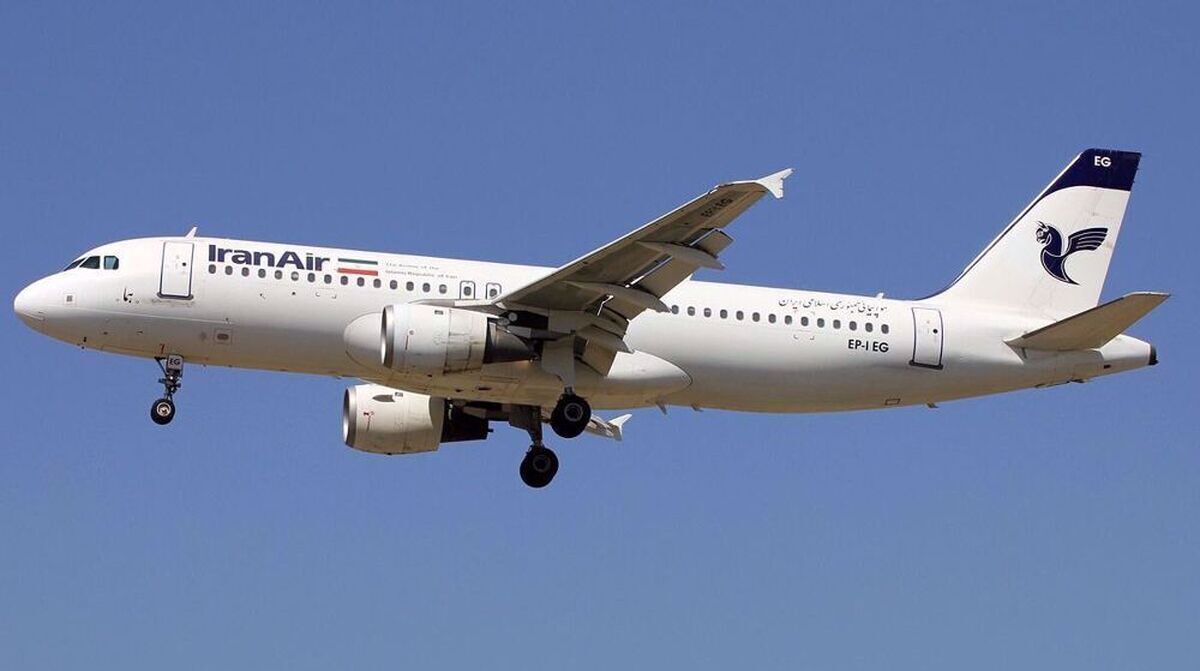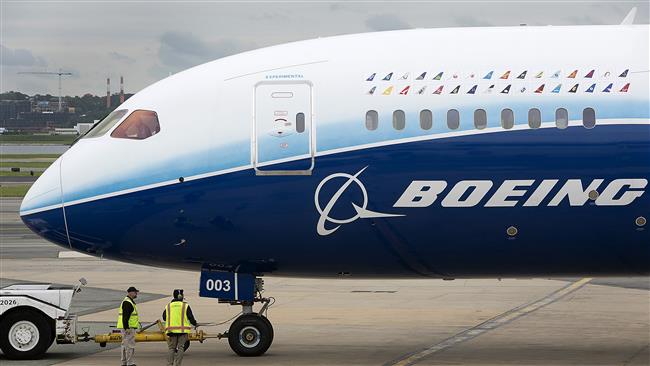
Nasdaq Explains Iran’s Discount on Plane Deals

EghtesadOnline: Earlier this month, Boeing signed a deal with Iran Air for 80 jetliners valued at $16.6 billion. However, on December 25, Iran Air revealed that it has negotiated to pay only half the announced price.
The deal was announced in June 2016 by Boeing and included the delivery of 50 737 Max 8s, 15 777-300 ERs and 15 777-9s to Iran’s national carrier.
According to IRNA, Iran’s deputy minister of roads and urban development, Asghar Fakhrieh-Kashan, said that given the nature of the order and its options, the purchase price for 80 Boeing jets is approximately 50% of the list prices.
It is widely known that when a commercial plane manufacturer discloses a firm contract, it is valued at the full list price of the planes in the order. Usually though, no one pays list prices, especially if the order contains such a huge number of planes, Nasdaq.com reported.
Boeing has a history of providing discounts on the list prices of its planes. Using 2014 data of list prices, deliveries and reported revenues, the average discount that Boeing applies on the list prices of its commercial airplanes is 47%, according to Financial Tribune.
Given its trend of raising discounts, along with the fact that Boeing regularly increases list prices, it is quite possible that the company will offer higher discounts in the future.
Iran Air inked a similar deal with Airbus, Boeing’s direct rival in the commercial airlines space, this month, under which Airbus will supply 100 jets to Iran Air. The deal would be worth $18-20 billion at list prices. However, the head of Iran Air has commented that the contract value would ultimately not exceed $10 billion.
Boeing’s management expects the deal to create thousands of employment opportunities for US citizens directly in relation with the production and delivery of the 777-300ER models.
Going forward, the company expects to create another 100,000 jobs in the US aerospace value stream for the full course of deliveries of these planes. Therefore, upon its successful execution, the deal will significantly improve the employment scenario in the US and in turn, contribute to its GDP.
Apart from the economic advantages, the deal is projected to bolster Boeing’s international business mix and fuel margin expansion, once the company begins rolling out deliveries in 2018, thereby boosting shareholder value either through dividend hikes or a higher share price.
US president-elect, Donald Trump, has all along criticized the January 2016 Iran nuclear deal, which limited the Islamic Republic’s nuclear program in exchange for relaxing trade restrictions, in particular on the export of crude oil from Tehran. However, it is courtesy of this agreement that Boeing received such a huge order from Iran.
Nevertheless, last month’s legislation is preventing the Treasury Department from authorizing US bank transactions for the sale and even barring the Export-Import Bank from helping Iran financially.
Since Iran is not economically well positioned, this could prove to be a serious headwind for the successful execution of this deal.
However, Iran says it has come up with a financing process for the deal to work out.
According to Fakhrieh-Kashan, Iran is prepared to fund the first $1 billion tranche for the planes in Airbus and Boeing contracts.
Half of this will come from foreign financing, primarily through a leasing company. The remaining half will be raised via various sources, including $330 million from Iran’s sovereign wealth fund called the National Development Fund of Iran and $120 million from a domestic sukuk issuance.
“Iran … has reached agreements with foreign leasing firms to finance a total of 77 aircraft, including 42 from Airbus and 35 from Boeing,” he said. “There will be at least two leasing companies.”
Considering this, Trump’s expected focus on economic growth stands against Congressional opposition. Since he has not yet made any comment on this deal, it is uncertain as to how exactly he will react once he steps into the Oval Office next month.
Boeing’s stock has gained about 9.2% in the last one year, underperforming the Zacks categorized aerospace/defense industry’s gain of 10.9%. This could be because Boeing continues to face challenges in the form of uncertainties related to high-cost programs, risks related to key project executions, order cancellations and stiff competition.
The company has also put up a weak show in comparison to other major players in the same space like Northrop Grumman Corp and Lockheed Martin Corp T, both of which outperformed the industry.


